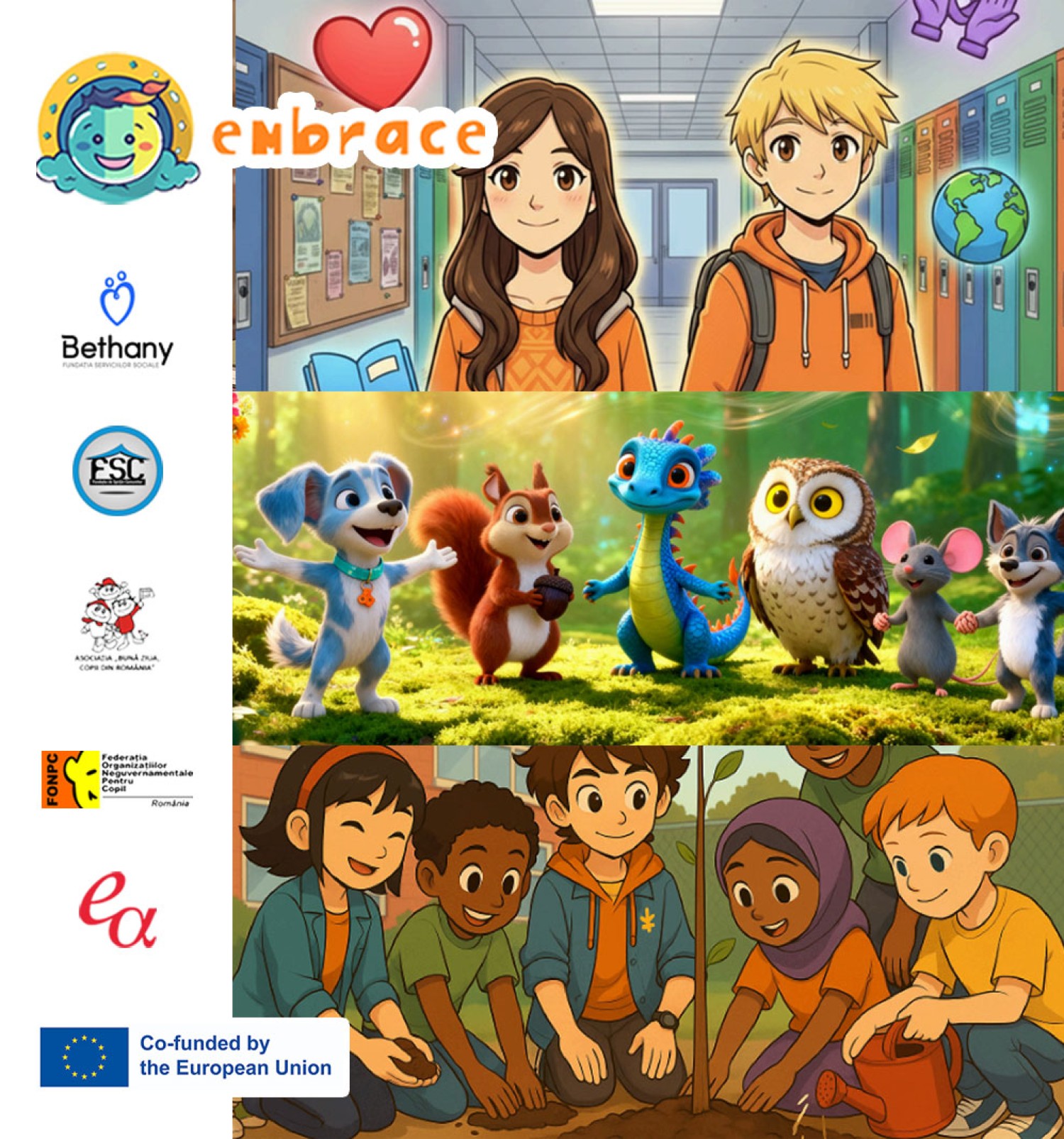🌙 Discovering Inner Values: Introducing Module 4 of EMBRACE
Young people grow not only through academic learning, but also through understanding their emotions, values, and connections with others. Decades of research in positive psychology confirm that these socio-emotional competencies are critical predictors of long-term success and well-being, often more so than IQ alone. Module 4 of EMBRACE places this inner development at the center.
This module focuses on spiritual well-being in a secular, psychological sense. It is a dedicated space where young people can explore what truly matters to them, how they relate to others, and how they can build meaningful, healthy relationships.
At its core, Module 4 introduces practical techniques grounded in scientific understanding:
- Inner values: Understanding what guides decisions, behavior, and identity. Psychologically, aligning behavior with core values (value congruence) is directly linked to higher self-efficacy (belief in one’s own ability) and reduced anxiety.
- Emotional literacy: Naming emotions and learning to communicate them. When a young person can clearly say, “I feel frustration and disappointment” instead of just “I’m angry,” they are using a technique called affect labeling. fMRI studies have shown that this simple act engages the prefrontal cortex (the brain’s executive control center) to decrease the intensity of strong feelings.
- Compassion, generosity, gratitude: Building a mindset that supports empathy and inclusion. Think of this as emotional strength training. These are cornerstones of positive psychology; the deliberate practice of gratitude has been proven to literally rewire the brain, increasing gray matter density and naturally boosting feel-good neurotransmitters like dopamine and serotonin.
- Honesty and forgiveness: Important tools for personal and relational growth. From a psychological perspective, forgiveness is a form of emotional regulation that reduces chronic stress. It’s a conscious choice that lowers cortisol (the stress hormone) levels and improves cardiovascular health.
- Social inclusion: Recognizing and celebrating differences, helping students form broader group identities that foster tolerance and reduce ‘us vs. them’ biases.
- Healthy relationships: Understanding boundaries, respect, and support, equipping students with the tools to build secure, reciprocal bonds with peers, siblings, and parents.
- Emotional regulation: Practical techniques for balance in daily life. We teach students specific, practical strategies, such as cognitive reappraisal (reframing a stressful thought from “This is a disaster” to “This is a challenge I can handle”) and mindfulness exercises. Research confirms these are powerful tools for strengthening resilience.
Through guided reflection, short discussions, creative tasks, and group activities, students are encouraged to think more deeply about themselves and the world around them.
The module helps them recognise strengths they may not see, express emotions they often keep inside, and build the confidence to act in alignment with their values. By nurturing emotional and spiritual well-being, Module 4 supports young people in becoming more grounded, empathetic, and connected, both to themselves and to others, preparing them not just for a career but for a thriving life.
Source:
- Lieberman, M. D., Eisenberger, N. I., Crockett, M. J., Tom, S. M., Pfeifer, J. H., & Way, B. M. (2007). Putting feelings into words: Affect labeling disrupts amygdala activity in response to affective stimuli. Psychological Science, 18(5), 421‑428. https://journals.sagepub.com/doi/10.1111/j.1467-9280.2007.01916.x?
Hölzel, B. K., Carmody, J., Vangel, M., Congleton, C., Yerramsetti, S. M., Gard, T., & Lazar, S. W. (2011). Mindfulness practice leads to increases in regional brain gray matter density. Psychiatry Research: Neuroimaging, 191(1), 36‑43. https://pubmed.ncbi.nlm.nih.gov/21071182/



